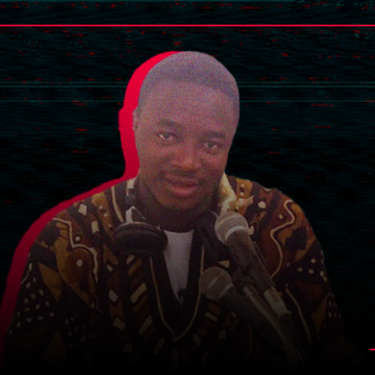Who was Abdoul Aziz Djibrilla, a tireless soldier in the fight for information in northern Mali ?

Shot dead in an ambush by an armed gang in northern Mali, Abdoul Aziz Djibrilla worked for community radio, one of the most important sources of news in the Sahel, and embodied the battle waged by local reporters to inform the population in conflict zones. Reporters Without Borders (RSF) calls on the Malian authorities not to ignore his murder and to do everything possible to find his killers, who also abducted two of his colleagues.
Abdoul Aziz Djibrilla had recently obtained a degree in English literature but he was bitten by the journalism bug. When he finished his studies earlier this year, he joined community Radio Naata (“Hope” in the Songhai language), which is one of the oldest community radio stations in the region and is located in Labbezanga, a village 200 km north of the city of Gao, near the border between Mali and Niger.
Djibrilla presented the news in Songhai, one of the languages spoken in the area, and produced reports that were very popular with listeners. More than anything else, he wanted to continue training in journalism. He had registered for a media workshop in Gao and was on his way there when his young life was brought to an abrupt end on 7 November. He was 28 years old.
He was killed instantly when the vehicle in which he was traveling to Gao was fired on by an armed gang that has yet to be identified. Two other journalists, Radio Coton Ansongo director and presenter Saleck Ag Jiddou (who is also known as Zeidane) and Moustapha Koné, were kidnapped by the gang.
The death of this young journalist with community Radio Naata, who was determined to pursue a career serving the public’s right to information, sadly illustrates the tragic working environment for media professionals in northern Mali and throughout the vast Sahel region. We salute Abdoul Aziz Djibrilla’s work and insist that his murder cannot be ignored. We ask the Malian authorities to publicly denounce his murder, launch an investigation, identify those responsible and do whatever is necessary to ensure that the two kidnapped journalists are found.
“A much appreciated journalist”
Djibrilla is mourned not only by the staff of the community radio in Labbezanga but also by colleagues in Gao and neighbouring localities who knew him and remember him as a “local reporting foot-soldier,” as Gao-based video reporter Bakary Sidibé described him. “Abdoul Aziz was a much appreciated journalist,” Sidibé said, going on to echo the concern of his colleagues about the fate of the two reporters still held by their captors.
Birama Konaré, a journalist based in the Malian capital Bamako, said he salutes the courage of his colleagues in the northern regions where armed groups are active, and says he worries about them. “Very few people care about their security,” he said. “They live in a hostile environment.”
Daouda Konaté, the general secretary of the National Union of Journalists of Mali (UNAJOM), said: “They are often attacked by armed groups for not relaying their messages or just for doing their jobs as journalists. That was the case in this cowardly attack.” Community radio stations, such as Naata, where Djibrilla worked, play a very useful role producing local news programmes that can be accessed by the local population.
Konaté added: “We must salute the courage and determination of these men and women of the media who work in remote areas and carry out tremendous work of informing and raising awareness among the local population about the need for the return of peace and social cohesion within their communities.”
Abdoul Aziz Djibrilla was one of these tireless soldiers.
